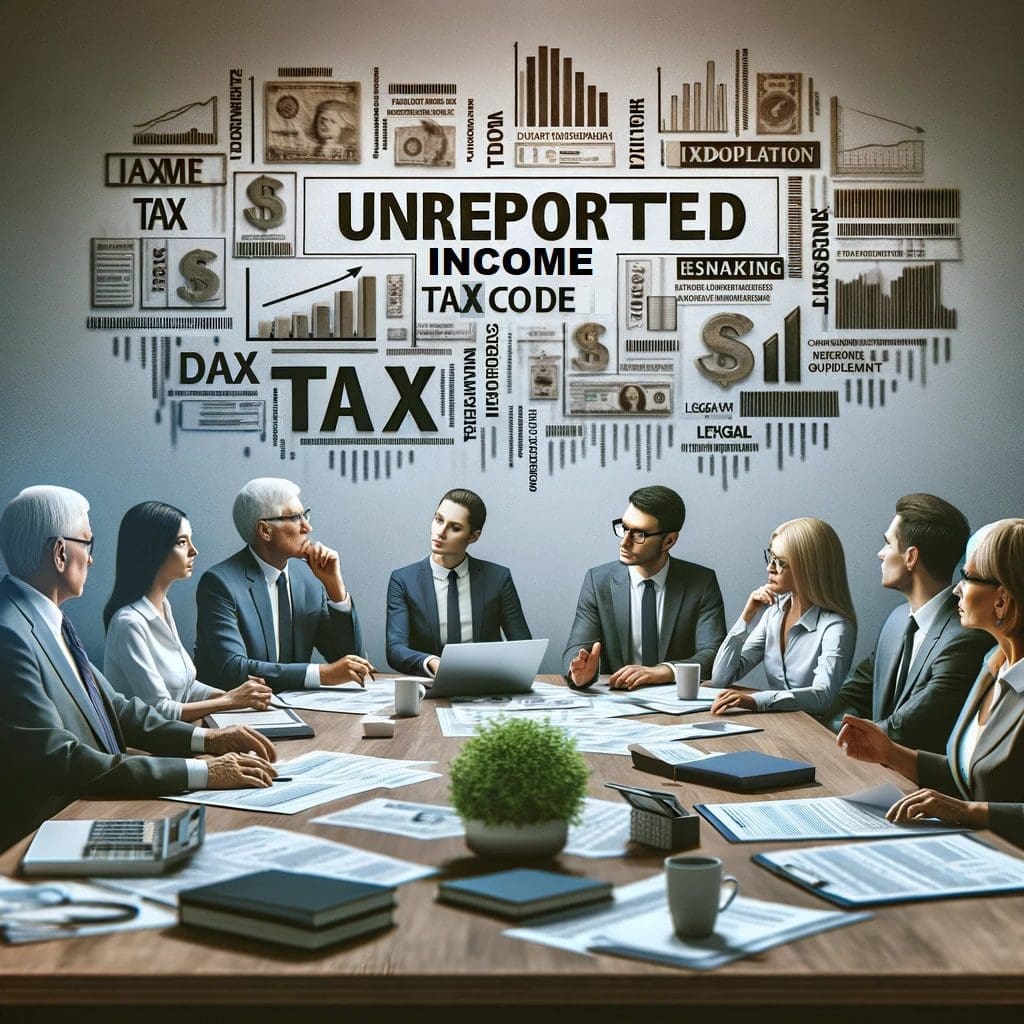Unreported Income in Tax Law: Legal Implications and Consequences
The issue of unreported income is a critical aspect of tax law, encompassing both civil and criminal legal consequences. This 1000-word article provides an in-depth exploration of unreported income, its implications in tax law, the legal processes involved, and the potential repercussions for individuals and entities.
Understanding Unreported Income
Unreported income refers to any income that an individual or entity earns but does not report to the tax authorities. This can include earnings from a variety of sources, such as employment, business operations, foreign income, and investments. The legality of not reporting income is clear: it is a violation of tax laws and can lead to severe penalties.
Civil Implications of Unreported Income
In civil law, failing to report income can result in various penalties. The Internal Revenue Service (IRS) can impose failure-to-file penalties, failure-to-pay penalties, underreporting penalties, and in severe cases, fraud penalties. These penalties vary based on the amount of unreported income and the taxpayer’s intent. If the IRS believes the failure to report income was due to fraud, the penalties are significantly higher.
Criminal Implications and Tax Evasion
In criminal law, unreported income is often associated with tax evasion. Tax evasion is a felony crime that involves deliberately underreporting or omitting income to reduce tax liability. The consequences of tax evasion can be severe, including hefty fines and imprisonment.
The Burden of Proof in Tax Litigation
In tax litigation, the burden of proof is crucial. In criminal tax cases, the IRS always bears the burden of proof. However, in civil tax cases, this burden may shift between the IRS and the taxpayer, depending on the specifics of the case. For example, in cases involving allegations of tax fraud, the IRS bears the burden of proof.
Foreign Income and Offshore Accounts
The issue of unreported foreign income and assets is particularly complex. The IRS has specific rules that extend the statute of limitations for unreported income from abroad. Failure to report foreign assets can lead to substantial penalties under various IRS regulations, including the Foreign Account Tax Compliance Act (FATCA) and the Report of Foreign Bank and Financial Accounts (FBAR).
IRS Amnesty Programs and Compliance
For taxpayers with unreported income, the IRS offers various amnesty programs to encourage voluntary compliance. These programs allow taxpayers to come forward, declare their unreported income, and comply with tax laws while potentially reducing their penalties.
Legal Assistance and Tax Advice
Given the complexities of dealing with unreported income, individuals and entities are often advised to seek legal assistance. Tax attorneys and certified public accountants can provide expert advice on navigating the legal requirements and resolving issues with the IRS.
Case Studies and Real-Life Examples:
- High-Profile Tax Evasion Cases: The case of Al Capone, the notorious gangster, is a classic example. Despite his various criminal activities, it was tax evasion, specifically on unreported income, that led to his conviction. This case is a historical reference that underscores the seriousness with which the IRS treats unreported income.
- Modern Cases of Unreported Income: In recent years, there have been numerous cases involving unreported income from digital currencies like Bitcoin. The IRS has ramped up enforcement on unreported income from cryptocurrency transactions, leading to several high-profile cases.
- Offshore Account Compliance: The case of UBS, a Swiss bank, and its American clients who hid income in offshore accounts is notable. This led to substantial penalties for UBS and sparked the Offshore Voluntary Disclosure Program (OVDP) by the IRS, targeting unreported income in foreign accounts.
Additional Legal Aspects:
- Statute of Limitations for Tax Evasion: Generally, the IRS has a three-year window to audit tax returns, but this window can extend to six years for unreported income exceeding 25% of the gross income shown on the return. In cases of fraud, there is no statute of limitations.
- Legal Defenses Against Accusations of Unreported Income: Taxpayers accused of having unreported income can defend themselves by providing evidence of non-taxable sources for the income or demonstrating inaccuracies in the IRS’s analysis.
- Role of Tax Professionals in Compliance: Tax professionals play a crucial role in advising clients about the legal requirements for reporting income and assisting in voluntary disclosure programs to mitigate potential penalties.
These expanded sections highlight the multifaceted nature of unreported income in tax law, from historical and modern case studies to the intricate legal aspects and defenses. Understanding these dimensions is vital for taxpayers and professionals navigating the complexities of tax compliance and litigation.
Conclusion
Unreported income poses significant legal challenges in both civil and criminal tax law. Understanding the legal implications, penalties, and processes involved is crucial for compliance and avoiding legal repercussions. It is always advisable for taxpayers to be transparent with their income reporting to avoid legal complications.
Sources:
- Golding Lawyers – IRS Penalties for Not Including Income on your Tax Return
- LA Tax Attorney – Burden of Proof in Civil Tax Litigation















